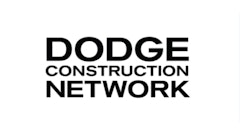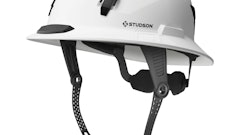
The construction industry learned countless lessons during the pandemic it won’t quickly forget. Chief among them is the importance technology plays in sustaining a hybrid workforce. The industry’s workforces have long been spread across multiple job sites, while administrators and leaders worked from central locations. While the former remains the same, the latter reality has shifted. With this change, it’s become increasingly vital for companies to connect field workers across jobsites with leaders and administrators who are also decentralized.
So is there one tool making it possible to connect field workers to dispersed employees and support a successful hybrid workforce? Yes - mobile workforce platforms.
A mobile workforce platform is a central hub on a digital cloud that collects and processes workforce data. What makes this technology so critical, especially with today’s hybrid workforces, is its ability to collect and share live field data on labor hours, project progress and equipment usage, among others. This just scratches the surface though. Here are three ways a mobile workforce platform backed by live field data can enhance hybrid workforces now and as companies continue to navigate the pandemic’s effects:
Using Live Field Data
Cloud computing, and mobile workforce platforms, have eliminated the need for high-powered, bulky pieces of technology to process data and track project progress on a jobsite. Gone are the days of lugging laptops around a site. Now, mobile workforce platforms put data collection technology right in the hands of field workers, project foremen and the like. Available on tablets and the smartphones that the majority of the population carries every day, these platforms allow workers to track tasks, job completion rates, equipment usage and submit safety forms — effectively eliminating long delays in reporting data. This ability to instantly input data and project progress also leads to fewer mistakes and inaccuracies.
With data synced across a company’s job sites and offices (both traditional and at home) and employees able to engage and access data from anywhere, they can now function in any capacity off site or on hand. What does this mean for a hybrid workforce? Administrative employees, whether in accounting or human resources or elsewhere, have access to timely, accurate data anytime and anywhere.
Remote Data Collection Shared on the Cloud
Hybrid workforces require open communication and consistent data. Without precise data on critical areas of a business such as labor hours, staffing, equipment usage and maintenance, safety, order changes, project progress, job costs, materials and more, a hybrid construction company can’t function or scale its operations. All this data though has to be recorded in a way that always works no matter what the situation is. This goes for accessibility as well. Every team member must be able to access usable data.
Mobile workforce platforms have effectively eliminated physical paper trails, meaning companies are able to move away from paper forms, antiquated systems and convoluted spreadsheets to track everything from employee hours worked to project expenditures and budget. The bonus: This digital data is quickly accessible from everywhere. Live field data ensures entire teams have access to an agile platform through which they can easily capture, store and share data across all needed channels and programs. In fact, even without cellular and data service, the data employees capture in real time immediately syncs up once they are reconnected to cell service or Wi-Fi. Flexible data collection that works in all situations gives flexibility to every worker to perform work at their peak in whatever circumstance they find themselves in. This is critical to a hybrid workforce. Without trustworthy data and timely reports, hybrid workforces are unable to collaborate, instead collapsing into their own work silos and eliminating productivity gains.
Mobile Workforce Platforms
The success of a hybrid workforce relies on company leadership being able to oversee and guide their team from any location. With a mobile workforce platform placing all the reporting and data on the cloud, and accessible from any device, company leaders and supervisors can give the best direction at any given moment without having to call into and email the home office or even log onto their computer.
Such platforms that support video, photo and audio messaging capabilities give leaders a way to engage with employees and respond to questions and issues with the same clarity offsite as if they were on the jobsite. They also enable the ability to collaborate across entire leadership teams on questions and issues, ensuring that their best minds are engaged with issues and the best solution is given for each situation. Live field data and digital reporting can also drastically reduce the amount of time supervisors spend on compiling reports and projections. With a mobile workforce platform, much of this reporting is completed automatically upon entry, freeing up time for more project coverage and in turn increased productivity.
In order for a hybrid workforce to succeed, every team member from a company’s executives to its onsite field workers has to be accountable and communicative. Mobile workforce platforms and live field data empower everyone on a team to take possession of a project to track progress and ensure success. With the ability to quickly track the progress being made onsite, and to share this data across entire workforces, mobile workforce platforms are paving the way for companies to sustain successful hybrid workforces.
Mike Merrill is co-founder and chief evangelist of WorkMax by AboutTime Technologies and host of The Mobile Workforce Podcast. Mike has been an entrepreneur and business owner in the construction and technology industry for nearly three decades.



















